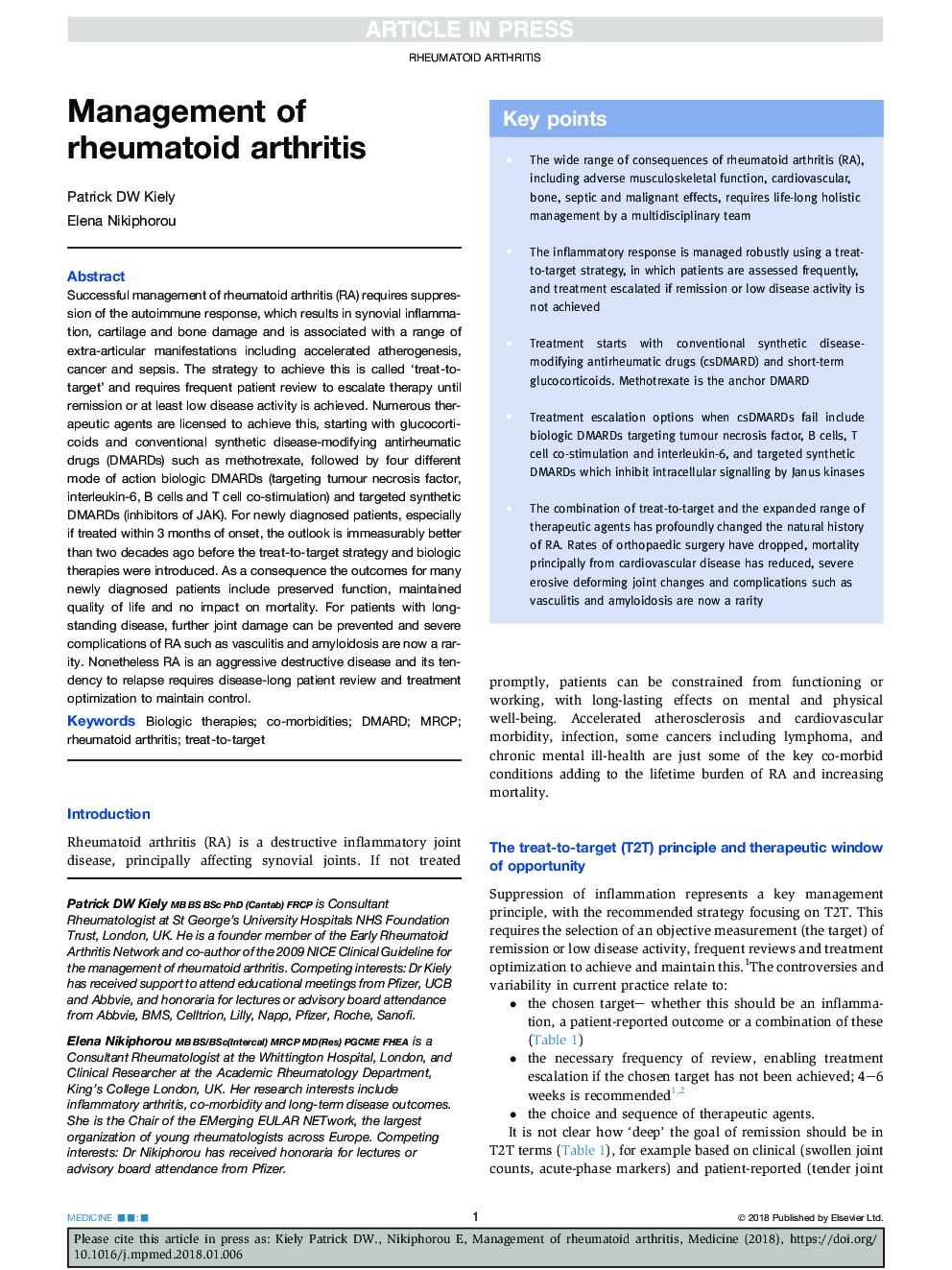| Article ID | Journal | Published Year | Pages | File Type |
|---|---|---|---|---|
| 8764039 | Medicine | 2018 | 6 Pages |
Abstract
Successful management of rheumatoid arthritis (RA) requires suppression of the autoimmune response, which results in synovial inflammation, cartilage and bone damage and is associated with a range of extra-articular manifestations including accelerated atherogenesis, cancer and sepsis. The strategy to achieve this is called 'treat-to-target' and requires frequent patient review to escalate therapy until remission or at least low disease activity is achieved. Numerous therapeutic agents are licensed to achieve this, starting with glucocorticoids and conventional synthetic disease-modifying antirheumatic drugs (DMARDs) such as methotrexate, followed by four different mode of action biologic DMARDs (targeting tumour necrosis factor, interleukin-6, B cells and T cell co-stimulation) and targeted synthetic DMARDs (inhibitors of JAK). For newly diagnosed patients, especially if treated within 3 months of onset, the outlook is immeasurably better than two decades ago before the treat-to-target strategy and biologic therapies were introduced. As a consequence the outcomes for many newly diagnosed patients include preserved function, maintained quality of life and no impact on mortality. For patients with long-standing disease, further joint damage can be prevented and severe complications of RA such as vasculitis and amyloidosis are now a rarity. Nonetheless RA is an aggressive destructive disease and its tendency to relapse requires disease-long patient review and treatment optimization to maintain control.
Related Topics
Health Sciences
Medicine and Dentistry
Medicine and Dentistry (General)
Authors
Patrick DW. Kiely, Elena Nikiphorou,
